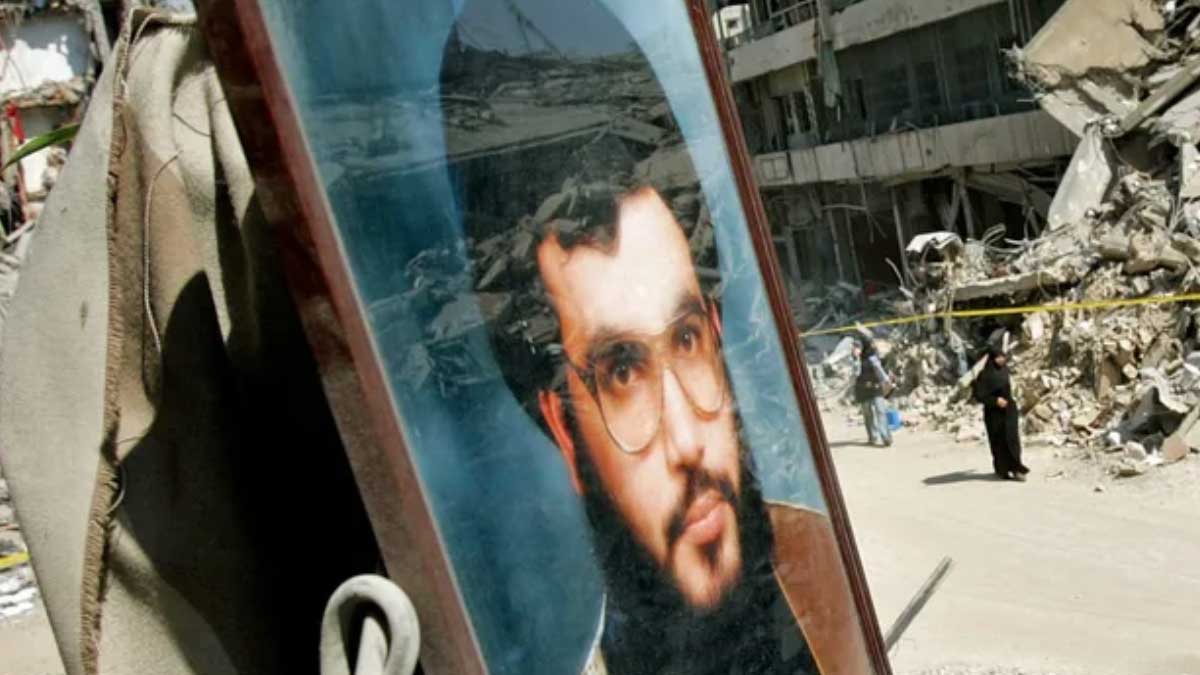- Home
- Billionaires
- Investing Newsletters
- 193CC 1000
- Article Layout 2
- Article Layout 3
- Article Layout 4
- Article Layout 5
- Article Layout 6
- Article Layout 7
- Article Layout 8
- Article Layout 9
- Article Layout 10
- Article Layout 11
- Article Layout 12
- Article Layout 13
- Article Layout 14
- Article Sidebar
- Post Format
- pages
- Archive Layouts
- Post Gallery
- Post Video Background
- Post Review
- Sponsored Post
- Leadership
- Business
- Money
- Small Business
- Innovation
- Shop
Recent Posts
Israel Kills Hezbollah Leaders Kaouk, Nasrallah

Israel’s military has claimed responsibility for the killing of Nabil Kaouk, a high-ranking Hezbollah leader, marking another significant blow to the militant group. The Israeli Defense Force (IDF) confirmed on Sunday that Kaouk, who was commander of Hezbollah’s preventative security unit and held several other influential positions, was killed in what the IDF called a “precise strike.” This announcement came just one day after the IDF said it had eliminated Hassan Nasrallah, Hezbollah’s long-time leader, in a similar targeted attack.
Kaouk, a prominent figure within Hezbollah, was described by the IDF as being closely connected to Hezbollah’s top leadership. The IDF also emphasized Kaouk’s role in planning and executing terrorist attacks. He served on Hezbollah’s executive council, commanded the southern region of Lebanon, and acted as the deputy commander of the organization’s operational council. These roles gave him substantial influence over Hezbollah’s operations, especially in the southern areas of Lebanon that border Israel.
The U.S. government had sanctioned Kaouk in 2020 through the Department of the Treasury’s Office of Foreign Assets Control. He was listed for being a central figure in Hezbollah’s leadership and for implementing what the U.S. described as a “violent and destabilizing agenda” targeting U.S. interests and those of its allies. The sanctions were part of broader efforts to weaken Hezbollah’s financial network and international operations.
News of Kaouk’s death has been confirmed by Hezbollah, according to a CNN report, which cited the group’s statement that Kaouk had been killed during an Israeli raid near Beirut. This follows the death of Nasrallah, who had led Hezbollah for 32 years and was considered a key figure in coordinating militant activities against Israel. His death, which occurred during an IDF strike on Hezbollah’s headquarters in southern Beirut, was confirmed just a day prior.
Israeli leaders had been monitoring Nasrallah’s movements for months before the strike that killed him. After his death, Israeli Prime Minister Benjamin Netanyahu expressed that Nasrallah was a figurehead for terrorism, stating, “Nasrallah was not just another terrorist, he was the terrorist.” Netanyahu further emphasized that Nasrallah’s death was crucial in preventing Hezbollah from rebuilding the capabilities that Israel had already diminished during previous military operations.
The killing of both Kaouk and Nasrallah comes amid heightened tensions between Israel and Hezbollah, exacerbated by Hezbollah’s involvement in the broader conflict between Israel and Hamas. Hezbollah expressed its support for Hamas’ attack on Israel on October 7, 2023, an assault that marked the start of a significant escalation in violence. Hezbollah itself launched an attack the following day, ostensibly in solidarity with Hamas, contributing to the rapid deterioration of security in the region.
In the days since the attacks, the conflict has intensified, with more than 600 reported deaths and over 2,000 injuries in Lebanon, according to the Associated Press. Israel has been concentrating its military efforts on southern Lebanon and Beirut, aiming to neutralize Hezbollah’s leadership and military capabilities. Hezbollah, in turn, has been launching retaliatory strikes against Israeli targets, including a missile attack on Tel Aviv aimed at the headquarters of Israel’s intelligence agency. Israel claimed it intercepted the missile before it could cause any significant damage.
This growing conflict between Israel and Hezbollah has sparked concerns that it could escalate into a larger, regional war. The involvement of international actors such as the U.S. has added another layer of complexity to the situation. As of Wednesday, around 40,000 U.S. troops were stationed across the Middle East, highlighting the potential for the conflict to draw in additional countries or even ignite a broader war in the region. The U.S. and other countries have expressed concern about the potential for the violence to spill over into neighboring nations.
In response to Nasrallah’s death, Iran, a key ally of Hezbollah, has issued stern warnings, vowing that the strike “will not go unanswered.” Iranian officials have also accused the U.S. of being complicit in Israel’s military actions, suggesting that any Israeli strikes against Hezbollah are indirectly supported by American resources or strategic planning.
The deaths of these high-ranking Hezbollah leaders could mark a turning point in the conflict. Israeli officials have hinted at the possibility of a ground invasion into Lebanon as a next step in their military campaign. U.S. officials, speaking to ABC News, have suggested that small-scale border operations may already be underway, though no decision has been made regarding a full-scale ground invasion. If such an invasion occurs, it could significantly alter the dynamics of the conflict, potentially leading to even greater instability in the region.
As of now, Hezbollah has lost seven senior leaders within a matter of weeks, according to various news outlets. This is a considerable blow to the organization, which relies on these high-ranking officials to coordinate its operations and maintain its influence in Lebanon and the broader Middle East. Israel’s strategy of targeting Hezbollah’s leadership appears to be aimed at weakening the group from the top down, preventing it from mounting effective attacks against Israeli targets.
Looking forward, the situation remains highly volatile. Hezbollah’s response to the recent deaths of its leaders could dictate the next phase of the conflict. A more aggressive military posture from Hezbollah could provoke further Israeli retaliation, while diplomatic efforts to de-escalate the situation have so far proven ineffective. The international community will be closely watching the developments, particularly the potential for Israel to expand its military operations into Lebanon, which could dramatically shift the balance of power in the region.
Recent Posts
Categories
- 193 Countries Consortium Partner1
- 193cc Digital Assets2
- 5G1
- Aerospace & Defense48
- AI37
- Arts3
- Banking & Insurance11
- Big Data3
- Billionaires1,021
- Boats & Planes1
- Business332
- Careers13
- Cars & Bikes79
- CEO Network1
- CFO Network17
- CHRO Network1
- CIO Network1
- Cloud10
- CMO Network18
- Commercial Real Estate7
- Consultant1
- Consumer Tech194
- CxO1
- Cybersecurity73
- Dining1
- Diversity, Equity & Inclusion4
- Education7
- Energy8
- Enterprise Tech29
- Events11
- Fintech1
- Food & Drink2
- Franchises1
- Freelance1
- Future Of Work2
- Games149
- GIG1
- Healthcare79
- Hollywood & Entertainment203
- Houses1
- India’s 1000 Richest1
- Innovation46
- Investing2
- Investing Newsletters4
- Leadership65
- Lifestyle11
- Manufacturing1
- Markets20
- Media195
- Mobile phone1
- Money13
- Personal Finance2
- Policy569
- Real Estate1
- Research6
- Retail1
- Retirement1
- Small Business1
- SportsMoney42
- Style & Beauty1
- Success Income1
- Taxes2
- Travel10
- Uncategorized12
- Vices1
- Watches & Jewelry2
- world's billionaires989
- Worlds Richest Self-Made Women3
Related Articles
South Korea Plane Crash: A Tragic Loss and Global Mourning
The tragic plane crash at South Korea’s Muan International Airport on Sunday...
By 193cc Agency CouncilDecember 30, 2024H-1B Visa Debate Splits Trump Allies and Silicon Valley
The debate over H-1B visas has once again become a contentious issue,...
By 193cc Agency CouncilDecember 28, 2024Trump Moves $4B Stake in Truth Social Parent, Stock Drops 6%
Donald Trump recently transferred his 57% stake in Trump Media & Technology...
By 193cc Agency CouncilDecember 20, 2024House Rejects Trump-Backed Funding Bill, Shutdown Looms
The U.S. House of Representatives rejected a new government funding bill on...
By 193cc Agency CouncilDecember 20, 2024















Leave a comment